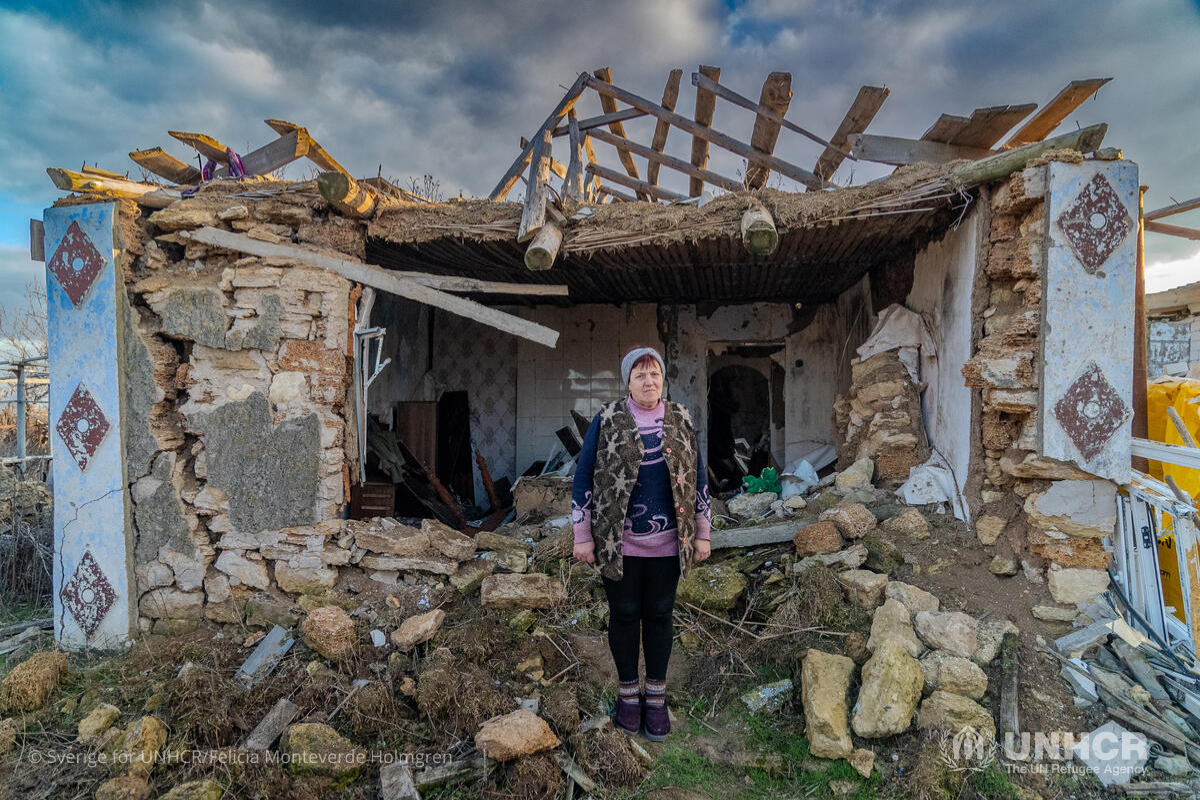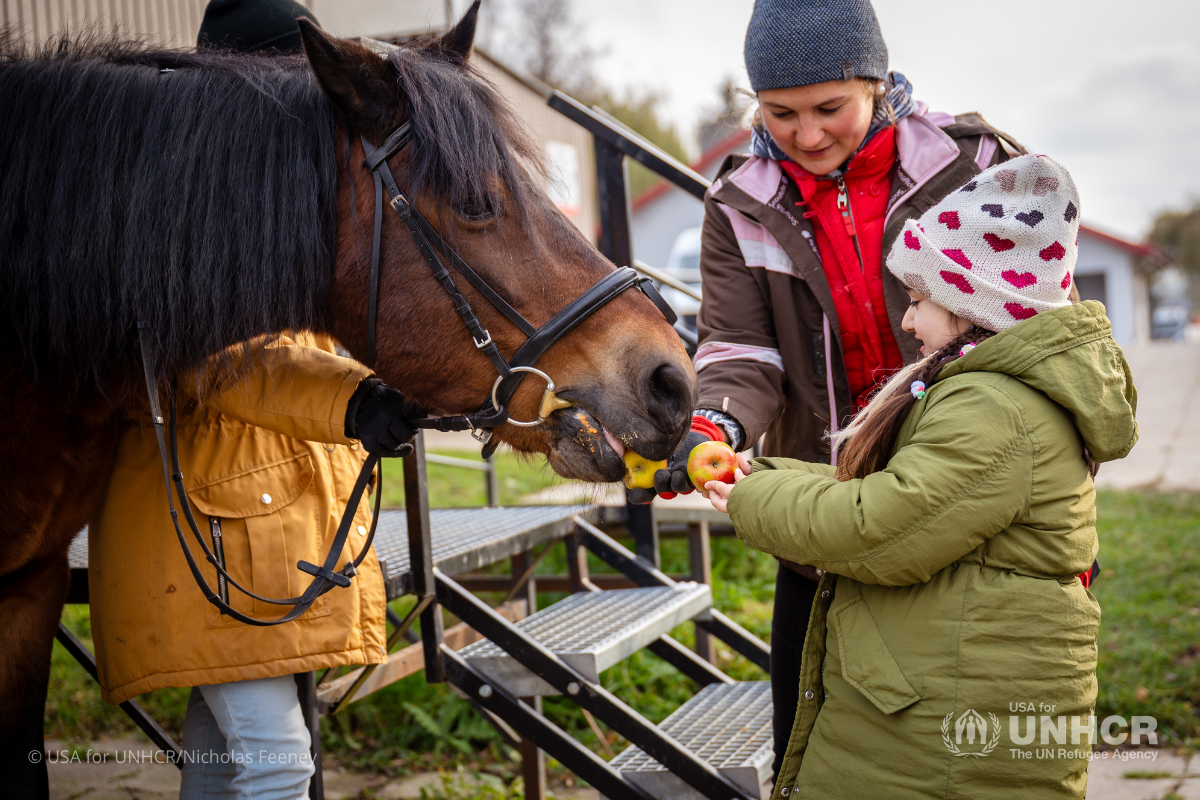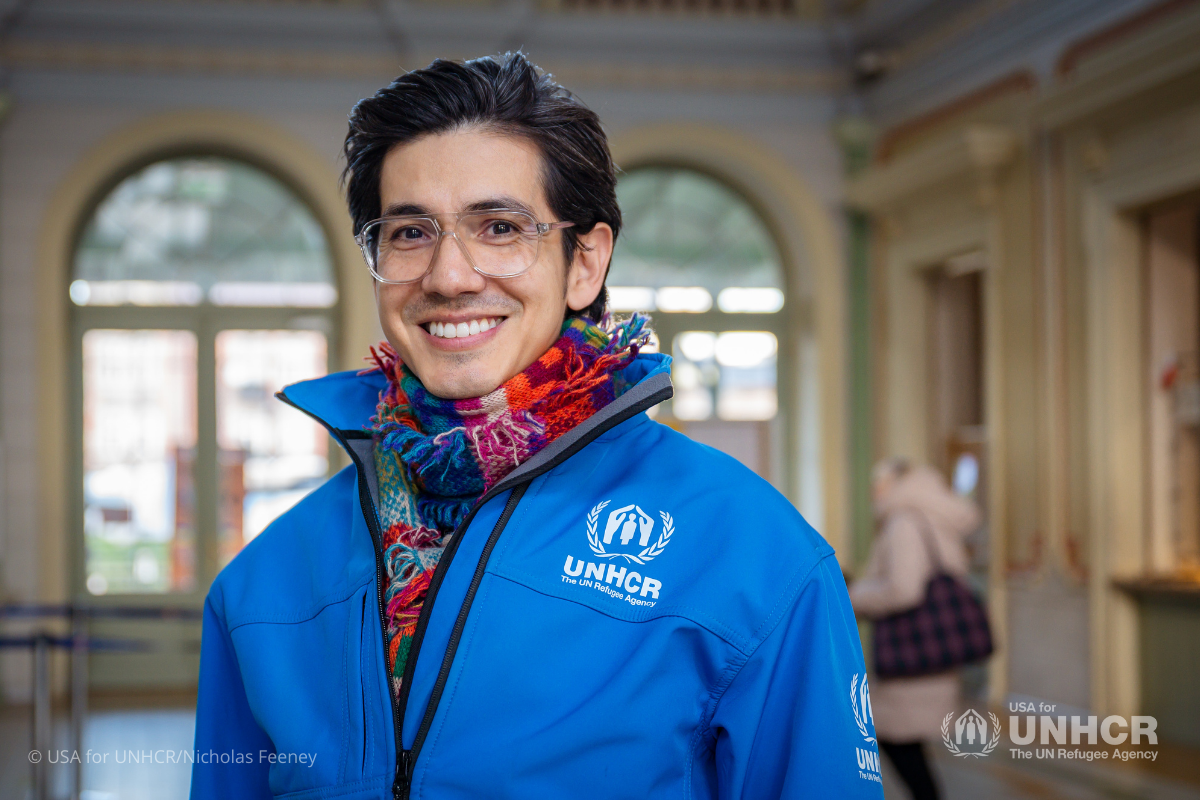5 Things You Should Know About the War in Ukraine
The full-scale invasion of Ukraine began on February 24, 2022, and has displaced millions of Ukrainian families in the country and across the region, triggering the biggest and fastest growing refugee crisis in Europe since the Second World War. More than three years later, 6.8 million people have fled from Ukraine into neighboring countries and an estimated 4 million Ukrainians remain internally displaced. As the war continues, it is crucial to understand what is happening on the ground and how you can help. Here are five things you need to know about the ongoing war and the situation in Ukraine.
1. When did the war in Ukraine begin?
The war in Ukraine began on February 24, 2022 following the Russian Federation’s large-scale invasion of Ukraine. The situation in Ukraine rapidly deteriorated as fighting, heavy shelling, missile and rocket attacks occurred in several regions throughout the country. The death, devastation and destruction inside Ukraine have been staggering—forcing millions of Ukrainians to flee and uprooting a third of the entire population.
The war in Ukraine comes on the heels of almost eight years of active fighting in Ukraine which has profoundly impacted the lives of millions of people. At least 2.9 million people living in the conflict-affected regions of eastern Ukraine were already in need of humanitarian assistance before the war began. The ongoing war has only deepened humanitarian needs in the frontline regions of the country.
2. Who is impacted by the ongoing war in Ukraine?
Ukraine has a total population of 41.4 million people. In the first year of the war, one-third of the entire population of Ukraine was uprooted—forced to flee their homes to safer areas in Ukraine, neighboring countries in Europe or abroad. As the war continues, humanitarian needs are multiplying and spreading. An estimated 12.7 million people in Ukraine will need humanitarian assistance in 2025.
People in Ukraine face targeted attacks and shelling on civilian and other energy infrastructure, resulting in the tragic loss of life and exacting a cruel toll on the population during winter. The destruction of energy infrastructure has led to an overall loss of 65 percent of energy generation capacity. Ukrainians are unable to meet basic needs and have difficulties accessing water, electricity, heating, healthcare, education and social protection. Many Ukrainians are living in damaged homes or in buildings ill-prepared for life-threatening freezing temperatures.
Particularly vulnerable groups include older people and people with disabilities who may be unable to flee from high-risk areas. Women and children, who make up approximately 90 percent of people fleeing the war, are at grave risk of gender-based violence and sexual exploitation and abuse.
3. Who is fleeing Ukraine and where are they going?
Since the war began more than three years ago, 6.8 million people have fled Ukraine and crossed borders into neighboring countries in the region including Poland, Hungary, Moldova and other countries across Europe. Poland has seen the largest influx of Ukrainian refugees with approximately 1 million hosted in Poland.
The majority of the people fleeing Ukraine are women and children who account for approximately 90 percent of refugees. Of Ukraine's 4 million IDPs, 58 percent are women and girls, which is one of the highest percentages of women and girls represented in IDP situations globally. Women face significant challenges and are at the greatest risk for sexual exploitation and abuse, human trafficking and forced prostitution. Given the high protection risks, UNHCR staff are in neighboring countries carrying out regular protection monitoring at border crossing points and transit centers to assess protection risks.
The war in Ukraine has generated an unparalleled outpouring of global solidarity and support. As the war and displacement continue, and until refugees can safely return home, Ukrainian refugees must be assured of adequate protection, access to education and self-reliance.

4. How is the war in Ukraine impacting the rest of the world?
Beyond the direct impacts the war is having in Ukraine and on its neighbors, the war has also caused ripple effects across the world. Ukraine supplies a significant portion of the world’s agricultural commodities including wheat, barley, corn and sunflower. As the war in Ukraine continues, it is causing supply chain disruptions globally and increasing the price of food, fuel and other commodities.
Displaced people living in already vulnerable situations are at risk of gender-based violence and other forms of abuse. UNHCR, the UN Refugee Agency, saw an unprecedented $700 million funding gap in the first year of the war in Ukraine, placing great strain on operations in Uganda, the Democratic Republic of the Congo, Sudan, Iraq, Ethiopia and other countries in dire need of support.
5. What is UNHCR, the UN Refugee Agency, doing to help?
UNHCR has been working in Ukraine since 1994, alongside local authorities, partners and community organizations to deliver protection and humanitarian assistance to people in need and remains on the ground to help now.
As the war continues, UNHCR and its partners are on the ground providing critical humanitarian assistance and protection. In Ukraine, UNHCR is expanding operations further east and south to hard-to-reach areas, delivering cash and in-kind assistance to Ukrainians, delivering emergency shelter repair kits to those with damaged homes, carrying out housing repairs and providing legal support and psychological counseling.
UNHCR and UNICEF have partnered together to establish 39 Blue Dots across eight different countries—one-stop safe spaces equipped to provide information, counseling, mental health and psychosocial support, legal aid and protection services for refugees.
While the full impact of the war is not yet clear, people continue to flee and there remains large-scale displacement in and out of the country. UNHCR has reinforced its operations in Ukraine and in neighboring countries, sending more resources and staff. UNHCR is working with national authorities to identify and support people forced to flee within Ukraine and scaling up response in neighboring countries currently receiving refugees.
What can you do to help?
More than two years since the war in Ukraine began, one-third of Ukraine’s population has already been displaced. As the war continues and humanitarian needs grow—your compassionate support is needed to help provide emergency supplies, lifesaving care and protection to families who are fleeing for their lives. You will help children, women and men displaced by violence in Ukraine know they are not alone at the most devastating moment of their lives. Make a compassionate donation today.


